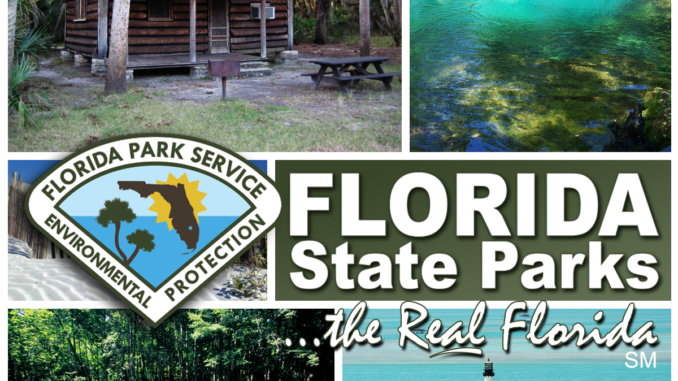
Controversial Plan to Build Amenities at Florida State Parks Announced…
A new proposal to build amenities such as a golf course, hotel, and pickleball courts at several Florida state parks has sparked heated debate among environmentalists, local residents, and government officials. The plan, which was officially announced last week by the Florida Department of Environmental Protection (DEP) in collaboration with private developers, aims to modernize the state’s park system and attract more visitors to Florida’s natural spaces. However, critics argue that the project could jeopardize the very environmental integrity that makes Florida’s state parks so unique.
### The Proposal
Under the new plan, the state would partner with private developers to build a series of high-end facilities, including a championship golf course, a luxury hotel, and recreational amenities such as pickleball courts, biking trails, and expanded campgrounds. The proposal targets several of Florida’s most popular state parks, including those located along the coast and in more remote, rural areas. According to DEP officials, these developments would generate additional revenue, improve the visitor experience, and create jobs.
Supporters of the plan argue that the infusion of private investment would help address long-standing maintenance and infrastructure needs in Florida’s state parks, many of which have faced budget cuts in recent years. By attracting more visitors, the project could boost local economies, especially in areas dependent on tourism. The developers involved in the project have promised to work closely with environmental groups to ensure that the new amenities are designed in ways that minimize environmental impact.
Environmental Concerns
Despite these assurances, the proposal has faced significant pushback from environmentalists who worry that the construction of a golf course, hotel, and other amenities within state parks could damage fragile ecosystems. Critics argue that such developments would result in habitat destruction, increased pollution, and greater human interference in sensitive areas.
For example, a golf course requires significant land and water resources, and many environmentalists fear that it would strain local ecosystems. Golf courses are notorious for their heavy use of water, pesticides, and fertilizers, which could potentially contaminate nearby wetlands, rivers, and groundwater. Additionally, the construction of hotels and recreational amenities could lead to the disruption of wildlife habitats and contribute to overcrowding in parks that are already facing challenges related to overuse.
“There is a delicate balance that must be struck between promoting tourism and protecting our natural heritage,” said Jenna Jackson, an environmental advocate with the Florida Conservation Coalition. “State parks exist to preserve Florida’s unique ecosystems, and introducing high-end developments could fundamentally alter these areas for the worse.”
Opposition from Local Communities
Local residents in some areas have also voiced opposition to the project, expressing concerns about the potential impact on their communities. Many residents value the quiet, natural beauty of Florida’s state parks and worry that the development could lead to increased traffic, noise, and commercialization in otherwise peaceful areas. Some are also concerned about rising property values and how new hotels or resorts could alter the character of their towns.
Moreover, many fear that such developments could turn public land into private enterprise, making it less accessible to locals and disproportionately catering to tourists and wealthier visitors. “Our parks should be for everyone, not just for those who can afford a luxury stay or a round of golf,” said Linda Martinez, a community organizer from central Florida. “If this plan goes through, it could lock out local families who rely on these spaces for recreation and relaxation.”
Support from Tourism and Economic Advocates
On the other side of the debate, proponents of the project argue that Florida’s state parks need an infusion of investment to remain competitive in a growing tourism market. Florida’s tourism industry, which is one of the largest in the country, has seen increasing competition from other states and nations that offer similar natural attractions. Supporters contend that the additional amenities would help Florida remain a top destination for both domestic and international tourists.
“These upgrades will allow us to compete on a global scale,” said Florida’s Secretary of Tourism, Carlos Hernández. “More people will come to Florida to visit our parks, bringing in much-needed revenue that can be reinvested into preserving these spaces for future generations.”
By offering luxury accommodations and high-end experiences like golf and pickleball, Florida could potentially attract a higher-income demographic that would stay longer and spend more, benefiting both the local economy and the state’s coffers. Moreover, the project is expected to create hundreds of jobs in construction, hospitality, and park management.
Balancing Development and Conservation
As the debate intensifies, Florida officials are under pressure to find a balance between conservation and development. Some have suggested that a more cautious, phased approach could help address concerns without sacrificing the benefits of the plan. For example, proponents of “eco-friendly” tourism have called for the inclusion of sustainable building practices and low-impact designs in the development plans. Green infrastructure, such as solar energy, water-saving technologies, and eco-friendly landscaping, could reduce the environmental footprint of the new amenities.
Additionally, some have recommended that a portion of the revenue generated from these developments be allocated directly to conservation efforts, helping to ensure that Florida’s state parks remain protected and well-maintained. This could include funding for habitat restoration projects, wildlife protection programs, and the preservation of endangered species that rely on these natural areas.
### Conclusion
The announcement of the controversial plan to build amenities such as a golf course, hotel, and pickleball courts in Florida’s state parks has divided opinions across the state. While proponents argue that the development would boost tourism, create jobs, and help maintain the parks, opponents warn of the potential environmental damage and disruption to local communities. As the debate unfolds, it will be crucial for Florida lawmakers and decision-makers to weigh the long-term impacts of such developments on both the environment and the people who cherish the state’s natural heritage.
Be the first to comment